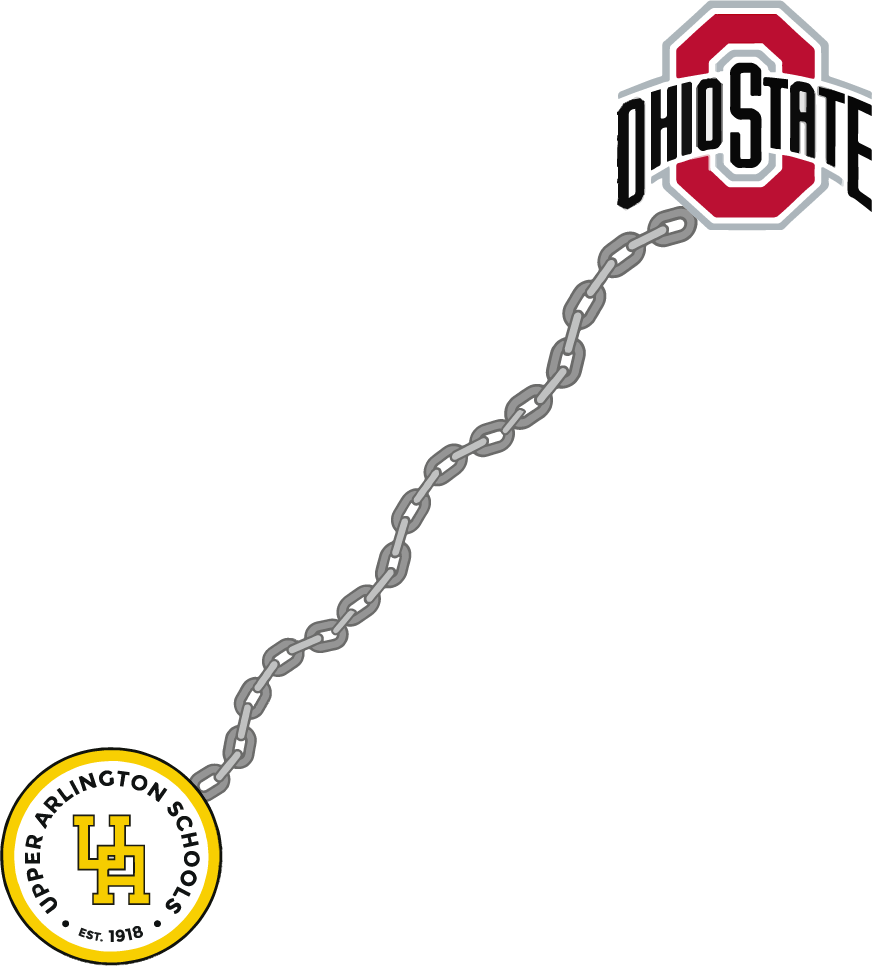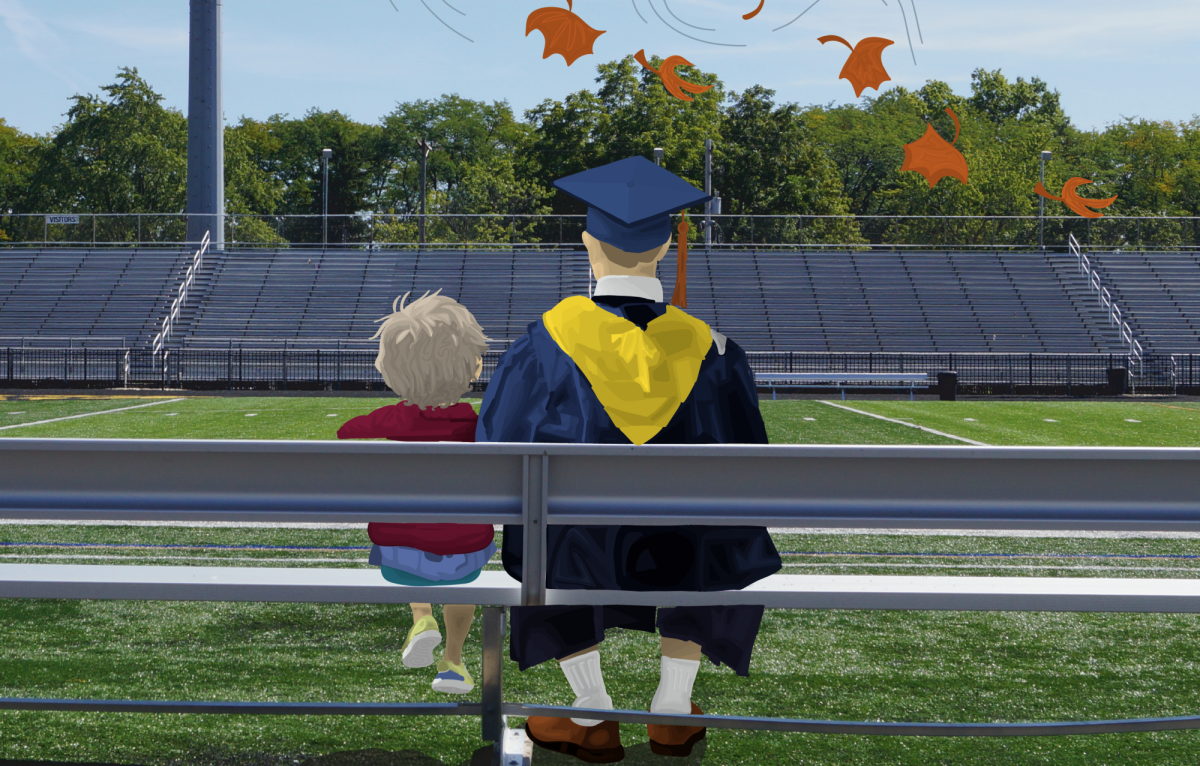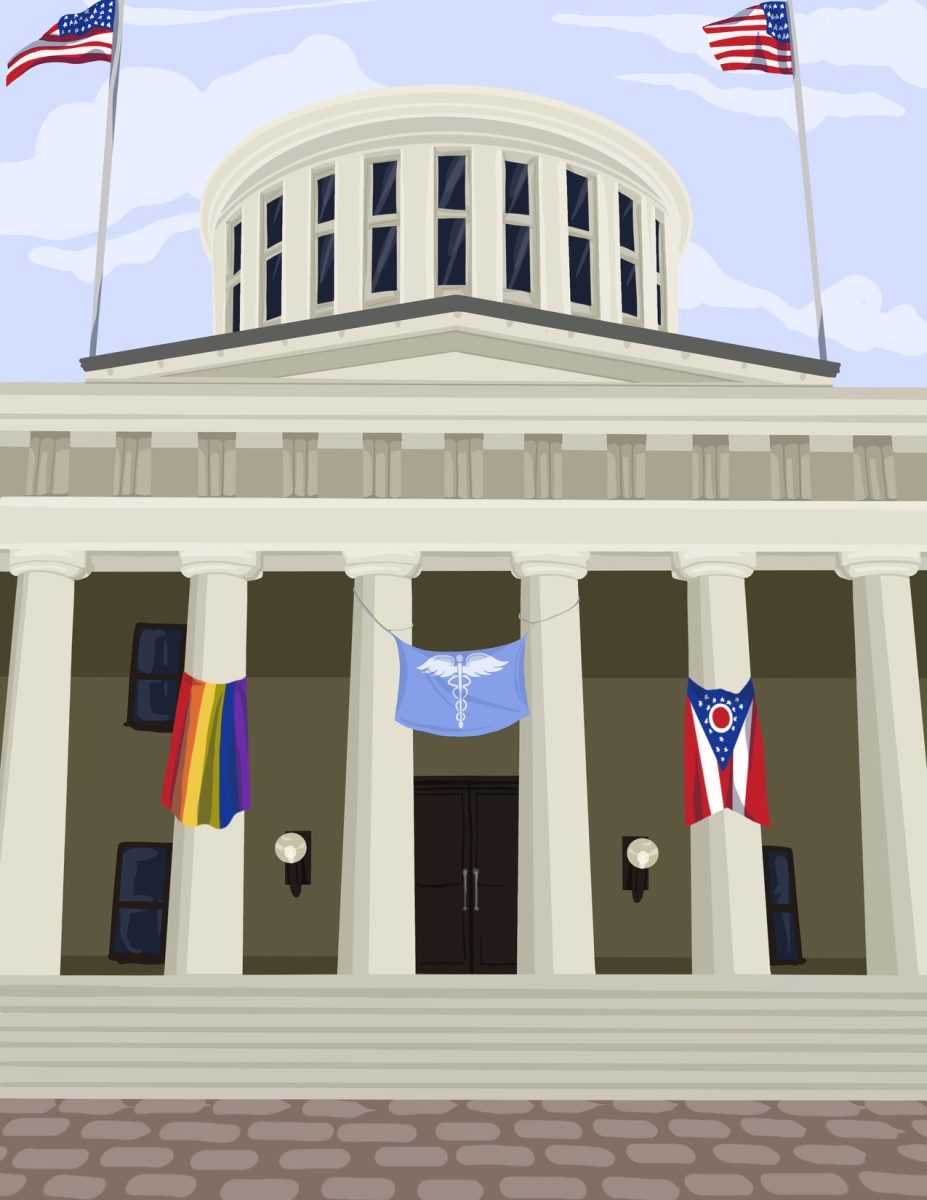The most notorious example of sportswashing is the 1936 Berlin Olympics, when Hitler used the Games as a means to spread Nazi Propaganda. Despite having been around for hundreds of years, sportswashing has become a buzzword that has weaseled its way into sports media in recent years. Despite its relevance, many people are unaware of its meaning and how impactful it is. Britannica defines sportswashing as “the use of an athletic event by an individual or government, a corporation, or another group to promote or burnish the individual’s or group’s reputation, especially amid controversy or scandal.”
The definition may seem long, but the history of sportswashing is longer. From the early modern Olympics to new-age sporting events that captivate an international audience, politics and money have remained as behind-the-scenes motives.
THE OLYMPIC GAMES
Since the first Olympic Games in 776 B.C., some form of sportswashing has occurred. In fact, the genesis of the Olympics was built around this concept. In 776 B.C The governing body of Greece was in search of a form of entertainment that would distract their citizens from the economic and governmental downfall occurring. Held in the Colosseum, the Greeks hosted violent and thrilling games. People from all over Greece gathered to witness these events. The Greek government had won, keeping their population distracted and at ease through the means of sports.
The Olympics is one of the most prestigious global sporting events to occur. With the popularity of this event, controversy and scrutiny are brought to the forefront. The infamous 1936 Berlin Olympics is a prime example of sportswashing on a global level.
“Germany had already begun its mistreatment of the Jewish population before the 1936 Olympics. So what it really needed to do at this point was the sportswashing aspect, the reputation laundering,” sports investigative journalist Karim Zidan said.
Reputation laundering is a common tactic authoritarian regimes use to cover up unethical behavior by carrying out positive actions to improve their reputation. Germany invited members of the International Olympic Committee (IOC) to visit their country prior to the 1936 Games in hopes of easing any tension. Before the members arrived, Adolf Hitler ordered his regime to strip the city of all antisemitic news, images, and media. When the IOC arrived in Berlin, everything seemed to be peaceful, and the idea of anything happening in Germany was now a conspiracy. The committee decided they would go through with attending the Games, and there was no boycott of the event.
“During the 1936 Olympics, Hitler created this facade of prosperity and peace, and it worked, it really worked at the time. They were able to host this event and continue to bolster his regime and empower him,” Zidan said.

Fast forward 80 years, and world leaders are still using the Olympics to shine a positive light on their regime and distract the world from their more sinister plans. The 2014 Winter Olympic Games were held in Sochi, Russia, and, well before the Games, President Vladimir Putin had been planning on annexing Crimea, Ukraine.
“It would be until 2022 when Putin would actually go to war with Ukraine, but he had already started these skirmishes and this proxy warfare, let’s call it, long before that,” Zidan said. “The 2014 Games was one of those things that was supposed to launder his reputation entirely, presenting Putin as this benevolent, magnanimous leader, who is in support [of] and leading the charge for a more prosperous Russia.”
For the most part, it worked;people of America and Europe did not question Putin, and the majority saw him as a rising leader.
Being an Olympian is a dream of athletes across the globe. Just getting to the Olympics is an accomplishment, but competing and winning is next level. Katie Smith, former professional basketball player and current Upper Arlington Girls Basketball Assistant Coach has been to and won gold at the Olympics not just once, but three times, competing for Team USA. Smith attended the 2000 Sydney, 2004 Athens, and 2008 Beijing Olympic Games.
“There’s a different pride to the Olympics because you’re proud of your opportunities, you’re proud to represent everybody that has been a part of your journey. You represent the USA, your professional team, your hometown,” Smith said.
Because of its prestige and grandiosity, the Olympics is a time that many countries take to carefully cultivate their image
“The Olympics and the FIFA World Cup are the two biggest international sports events in the world–the absolute biggest, yet they both are the biggest enablers of autocrats and authoritarian leaders around the world,” Zidan said.
FIFA WORLD CUP

Lionel Messi’s Inter Miami Jersey was the best-selling MLS Jersey in 2023. With 501 million followers on Instagram and fans paying record prices for Inter Miami Tickets, it is difficult to deny Messi’s impact on the sporting world.
Messi has been an example of excellence in soccer for decades and a worldwide celebrity since his debut at Barcelona. Yet, only recently has Messi’s popularity become astronomical; the 2022 Qatar World Cup solidified Messi as a legend of the sport.
The Qatar World Cup featured the most-watched final in all of FIFA World Cup history with 1.5 billion viewers worldwide. The star power of the final was undeniable as Messi’s Argentina side faced off against the defending champions, France. Qatar is now remembered as the place where one of soccer’s all-time greats solidified his place in history.
Despite the euphoric quality of the final and the tournament as a whole, many don’t see the Qatar World Cup as an innocent affair.
Beginning long before the World Cup, Qatar has a lengthy history of human rights violations. Reports of slave labor, lack of freedom of the press, and discrimination against women and the LGBT+ community are some of the most current issues in the country.
“In regards to some of the stuff we’ve seen, like the woman discrimination in that country and stuff like women not being able to go to the game,” Edson Ramirez, Forum monitor and Ohio Premier soccer coach, said. “I found that weird, you know, especially in the day when we’re trying to promote the women’s game.”
As is custom, the host nation is responsible for building stadiums and any infrastructure required to handle the masses of people intending to attend. Conflict arose when it was found Qatar was forcing workers to build the stadiums without fair compensation, essentially utilizing slave labor. Journalists and fans alike were in an outcry due to the news.
“I think their political reputation was tarnished from the beginning,” Ramirez said. “Just because of the corruption that supposedly went into them being able to host [the tournament].”
The Denmark national team had been planning on wearing jerseys that promoted equality, yet they were prevented from doing so. In response to the injustice, no Danish political leaders or family members of the players attended a single match in Qatar. This was in an attempt to not support the country with their tourism.
Qatar is not the only country that has utilized the FIFA World Cup as an opportunity to cleanse its image. Shortly before their invasion into Ukraine, Russia hosted the 2018 World Cup. Although they weren’t in the middle of a major political conflict at the time, Russia has been subject to much political skepticism from the rest of the world.
Long before the tournament was held in Russia or Qatar, Argentina held the World Cup in a time of great turmoil in their country. Argentina was under a military dictatorship at that time. Despite being awarded the hosting rights of the tournament years earlier, the World Cup’s timing in Argentina helped distract the world from the disparity that was plaguing the country.
The World Cup has generally been a beacon of equality and understanding between countries. Many of the anthems written for the tournament highlight the importance of coming together as one people, yet the World Cup has been appropriated repeatedly by countries seeking to correct their image. Almost every country in the world has had their share of political wrongdoings and misfortunes, and every country is given the opportunity to make things right or sweep their issues under the rug.
The modern colosseum that is the World Cup gives countries the opportunity to get away with continued offenses while fans are distracted by the gladiatorial entertainment provided. Countries will continue to battle for the trophy and the world will let dark parts of history be washed away by athletic accomplishments.
NAME, IMAGE, AND LIKENESS
NIL stands for “name, image, and likeness” and is the new means of collegiate athlete endorsement. Athletes can monetize their success on top of their school-funded scholarships if acquired. All colleges have different rules when it comes to NIL because of the informal NCAA policy. The NCAA’s policy was passed in June 2021, and this temporary arrangement has three main parts to it: athletes can engage in NIL activities if they follow their state’s laws where their school is located, athletes in states without NIL laws can still participate in NIL activities without breaking NCAA rules, and athletes are allowed to seek professional service providers for their NIL activities.
NIL’s main purpose is for college athletes to receive profit benefits. However, people are divulging their opinions and claiming the deals are breaking athletes’ aim on why they followed through with collegiate sports. Claims have been made that athletes are participating in athletics for the potential money they could earn.
On March 12, 2024, Nick Saban, former football coach at the University of Alabama, headed to the U.S. Capitol to discuss NIL. He stated that these college athletes are being made employees and emphasized the importance of development and making raised money equal for all institutions. NIL was introduced almost three years ago and was left to state governments to determine how they wanted to implement it. Therefore, the NCAA has not had much ability to enforce any ruling, which leads coaches and colleges unsure of what to do.
To help, schools are doing as much as they can to help students and brands navigate NIL. At University of Cincinnati, the Bearcats Exchange helps businesses that are interested in connecting with student-athletes. The Bearcats Exchange has made NIL planning much easier for athletes and businesses.
Another issue with NIL is the lack of limitations on how much an athlete can earn. The NCAA has made guidelines and regulations, however, there is no set limit on the amount a player can earn. Many factors go into the amount an athlete can make including their popularity, social media following, and how they perform in their sport. A top athlete can make significant sums of money. This is all a positive until these athletes are so focused on the business that they forget the integrity of the sport, and the lines between professional sports and collegiate sports blur.
Although some people don’t appreciate what athletes are doing for NIL, there are many benefits for these athletes receiving extra pay. According to a 2019 study from the National College Players Association, 86% of student-athletes who live off campus are living below the federal poverty line. That means that the scholarships and NIL deals are helping these athletes maintain a steady income. Athletes won’t have all the free time to work a part-time job. Instead, they can quickly make a social media post using their name, image, and likeness to receive money. Brands are looking for micro-influencers, which means people with 1,000-100,000 followers. This scale is perfect for collegiate athletes, especially ones that participate in non-revenue-generating sports. Overall, NIL will improve financial needs and professional development and also will increase sport engagement and interest in watching college sports.
Former Upper Arlington student and current University of Cincinnati athlete Lily Stelzer is an active user of NIL. Stelzer graduated in 2023 at Upper Arlington and chose to continue her lacrosse career at the D1 level.
“[NIL] is a great opportunity for any athlete, non-revenue, revenue, women’s, men’s, or whether you play or not. I think it’s just a great opportunity to express yourself and promote yourself and your brand,” Stelzer said.
Stelzer thinks very positively of the NIL and the opportunities it has brought to her. To her, it is just another way to promote herself and continue growing her network.
“I think the best part about NIL is that you can make it kind of whatever you want, like you can make it yourself. No one’s forcing you to work with any specific brands,” she said.
Stelzer agreed that the NIL is a great way for athletes to make money with such little time they have with sports and academics. She has worked with smaller brands like Better Blend, which is an açaí smoothie restaurant located on the Cincinnati campus.
“I got to post on my Instagram and TikTok a little bit and receive some money towards their business like free bowls. That was really awesome,” Stelzer said.
Another NIL opportunity for all female athletes was an event called “Her Likeness.” Stelzer participated and recently posted on her LinkedIn. Her Likeness was sponsored by Cincinnati NIL brand Cincy Reigns and Ulta Fiber.
“We posted something quick on our story, then we got to listen to a panel of women, which was also super interesting. Then we got to network and talk to a bunch of other female athletes,” Stelzer said.
Though Stelzer loves NIL and the benefits, some people still believe that NIL is turning sports into business. She is aware of some of the controversy but still believes the NIL has made a very positive impact on her academic and sports life.
“There’s been rumors of athletes getting paid just to get paid, [meaning] not doing any sort of NIL deals. I think in the future that could cause problems. That would hurt smaller universities and non-revenue sports,” Stelzer said.
Overall, NIL is a great way for athletes to receive money while in college. If students or businesses begin to overuse this new deal it might not last. To help the NIL remain, more federal regulations on the amount of money allowed to be earned would keep it fair between athletes that go to different universities.
Although NIL does not fully fit the sportswashing definition, there can be some overlaps because of the controversy of athletes putting a price to their name, image, and likeness. Depending on the situation, athletes might be using brand deals to bring attention to sports. Most of these situations are not negative.
FORMULA ONE
Formula One (F1) racing has been a significant part of sports since the 1950s and is the highest class of international racing for open-wheel single-seater formula racing cars. Formula One has had significant impacts on history, ranging from technological advancements to cultural influence, and continues to make waves in the media. Even though this is a sport that is followed by millions and is undoubtedly the wealthiest sport in the world, sportswashing in Formula One has affected millions of communities and countries.
The races have been hosted in countries such as Bahrain, Azerbaijan, and Saudi Arabia, which are countries that have used Formula One racing events to increase tourism and economy. However, endorsing and condoning these actions has given Formula One a bad look in the media and has also distracted from some real issues occurring in these countries. Last year, the Bahrain Grand Prix took place in March. In an open letter to Formula One, Stefano Domenicali, the current CEO of F1, received a letter from ISHR (International Service for Human Rights) about the human rights conflicts occurring in Bahrain and how Formula One has continued to play a big role in sportswashing. ISHR joined together with over 20 civil society groups to try and bring awareness to the ongoing conflicts in Bahrain that are covered by the sporting event. “We note that in a 12 February 2023 interview with Sky Sports, you affirmed that you would “pull the Grand Prix, like you did in Russia” if F1 was not satisfied “with the way human rights issues have developed in a country” that hosts an F1 race. “You went on to reference ‘specific articles’ in your contracts that were followed by ‘independent auditors’ and could be invoked if human rights were not “going in the right direction,” the letter states. It was then made clear that Formula One did not withdraw the event, “However, it is unclear to us what specific human rights criteria F1 applies to make a decision to withdraw hosting privileges from a country.” This letter was not enough, since the event still took place despite human rights concerns.
“I think that it can have a negative impact in the sports world and cover up human rights violations of countries for sporting events. I think that some effects of this can make F1 more corrupt,” sophomore Marco Krantz said.
Hosting high-profile sporting events like these can steer away from what’s occurring behind the scenes, such as political repression, including human rights violations occurring in Bahrain. According to Amnesty International, the government in Bahrain tightened access to public healthcare for families whose children are stateless due to their gender-discriminatory nationality law. This has made it incredibly difficult for families to have medical support, and this problem has not been resolved. According to Human Rights Watch, members of Bahrain’s political opposition (activists, human rights defenders) are still imprisoned for their roles in the 2011 pro-democracy protests and for more recent political activism. Lack of insurance and lack of free will is an ongoing problem in Bahrain. Formula One masks problems that are impacting individuals in these countries by hosting Grand Prix events.
“In my opinion, it is a problem because it is unfair to people that are affected by the situation. It makes it look like there is no punishment for doing bad things,” sophomore Zach Lang said.
These countries use F1 racing events to increase tourism and investment and divert attention away from the issues and conflicts occuring in the country.
“It definitely impacts Formula One because there are several countries that have races and have still refused to give rights to everyone,” Lang said.
Saudi Arabia has heavily engaged in sportswashing more recently; its connections with F1 were impacted by a missile that struck an oil facility near the Saudi Arabian Grand Prix two days before an all-female racing event in 2022. This attack caused drivers to want to boycott the race, but they were persuaded into participating in the event. According to the Guardian, Saudi Arabia has spent at least $1.5b on sportswashing in attempts to increase it’s reputation
“I think Formula One continuing to race and build stadiums in these countries would definitely affect politics because countries will not feel the repercussions of their actions,” Lang said.
Not only do these stadiums distract from human rights struggles in host countries, but these events can damage the environment. According to Green Matters, a lifestyle media company “dedicated to making news and topics across sustainability and innovation accessible to all,” F1 has produced 256,000 tons of carbon dioxide every season. The construction of F1 arenas has led to the pollution of vital ecosystems. Despite this, F1 is slowly decreasing their carbon emissions and improving their carbon footprint. According to The Athletic, F1 has pledged to be completely carbon-free by 2030.
“For the environment, I think it would be better to have a more streamlined race schedule so drivers, teams, fans, and cars aren’t flown back and forth across the globe during the season,” Krantz said.
Even though this was put into place, this still does not reverse the damage that has been done, but at least there is hope for the future of F1. Outside of these challenges from F1 events, more controversy has arisen with the president of the FIA.
The Fédération Internationale de l’Automobile (FIA) is an association that brings international motoring and sporting organizations. The FIA is responsible for sporting matters regarding F1. Recently, the FIA has been involved in some controversy regarding its president Mohammed Ben Sulayem. In March of this year, Sulayem went under investigation for apparently interfering with last year’s Saudi Arabian Grand Prix. According to a whistleblower, Sulayem attempted to overturn a penalty given to Aston Martin’s Fernando Alonso. This play dropped Alonso from third to fourth place and was called after he stood on the podium.
The allegations state that Sulayem contacted Sheikh Abdullah bin Hamad bin Isa Al Khalifa, the vice president for sport for the Middle East and North Africa region, and it was clear he believed Alfonso’s call should be revoked. The FIA was expected to release a statement within four to six weeks, and on March 20th, 2024 it was revealed there was no evidence of misconduct. Despite there not being any sort of evidence, this conflict still gives the FIA and F1 a negative look.

“I believe the president of the FIA going under investigation would be problematic for the sport if he ended up being guilty, however, the investigation ended up proving him innocent,” Lang said.
The FIA has been under fire after this investigation, and Formula One, despite Sulayem being proven not-guilty. Not only has this investigation caused conflict, but the continuing construction of stadiums across the world has brought harm and raised concern about Formula One.















